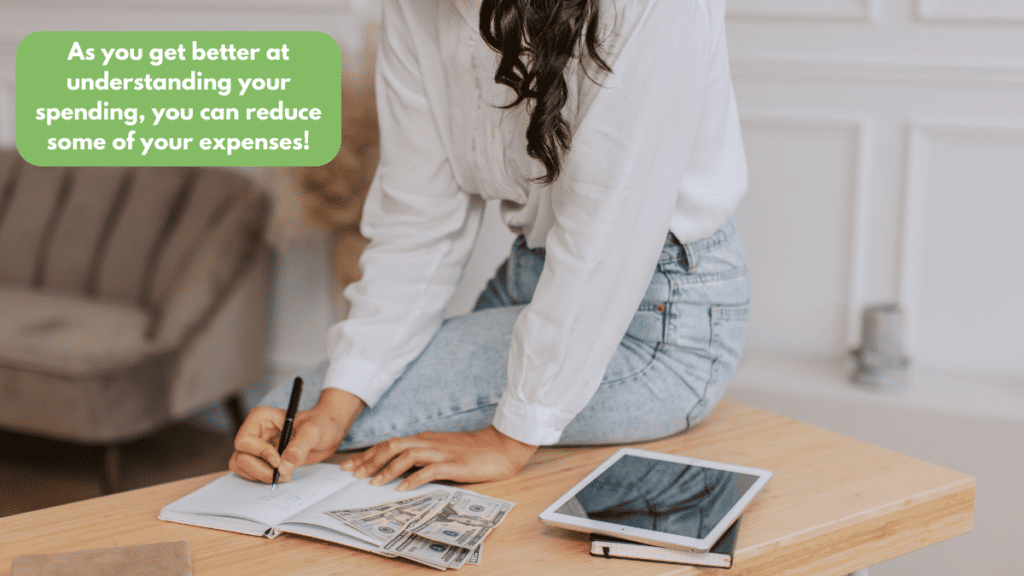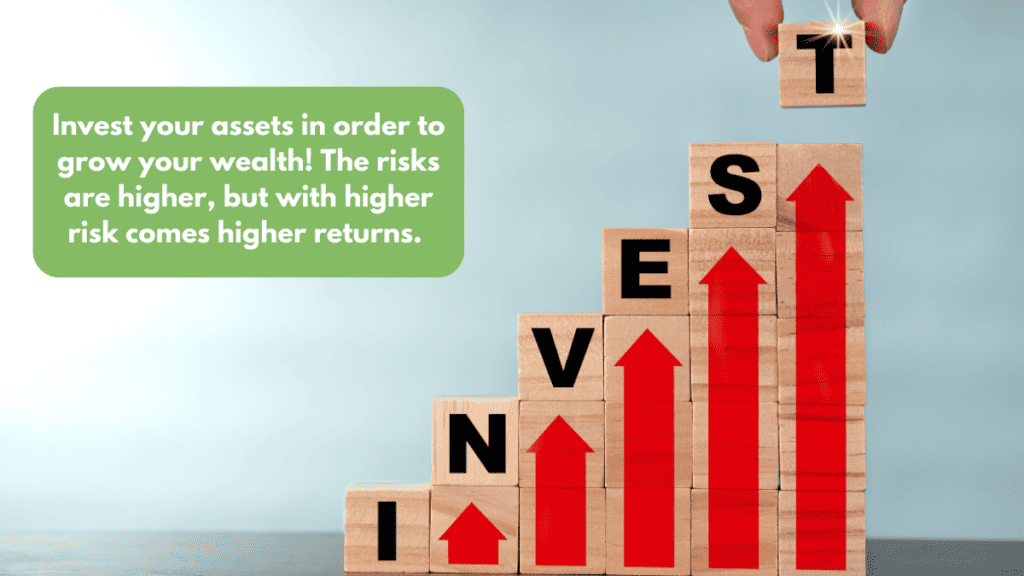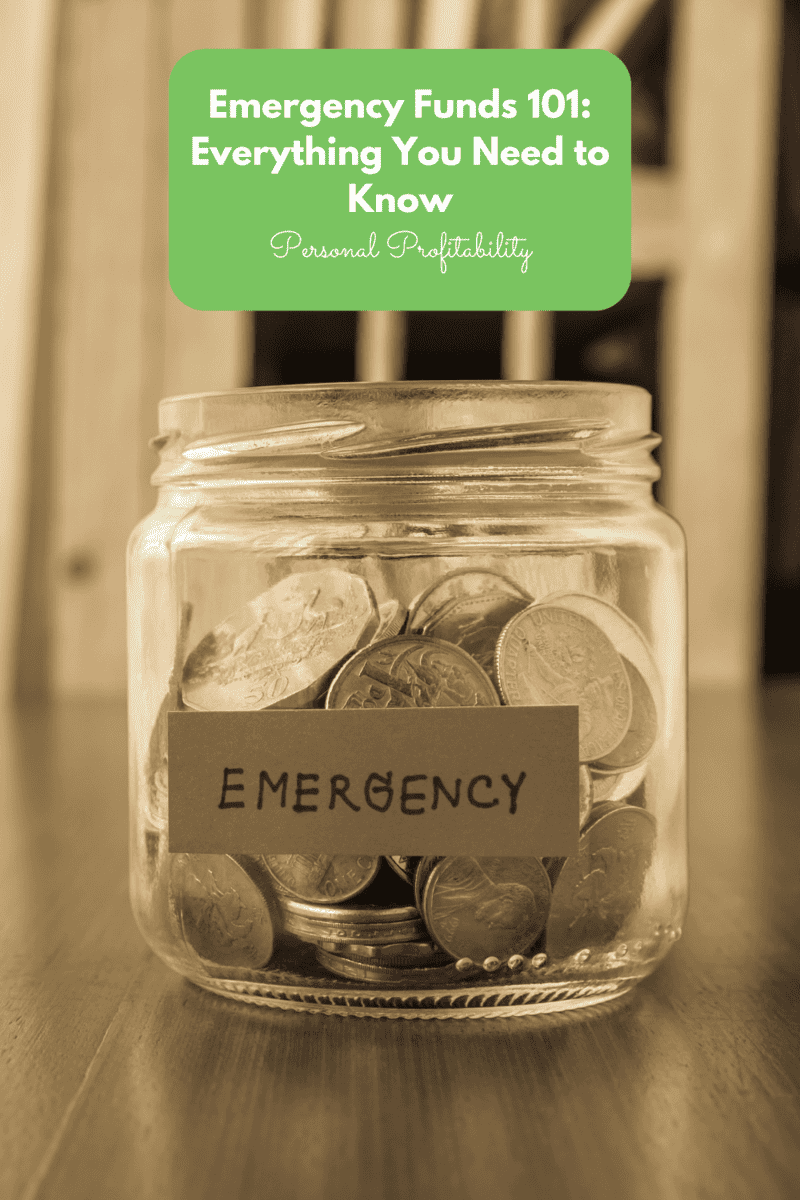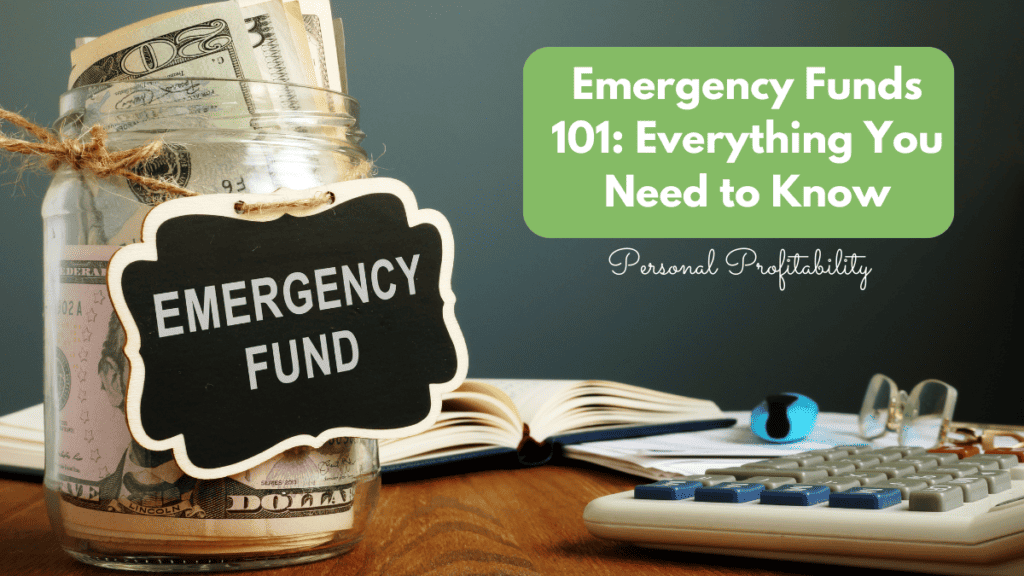You’ve likely heard of the idiom that we should all prepare for a rainy day, right? But do you actually know what it means to create an emergency fund?
Here’s everything you need to know about emergency funds so that you can be prepared for the unexpected.
- What Is an Emergency Fund?
- Why Do You Need an Emergency Fund?
- How Much Should You Have in an Emergency Fund?
- Three Steps to Build Your Emergency Fund
- Where Should You Put Your Emergency Fund?
- What Should You Do Once You’ve Built Your Emergency Fund?
- What If Your Emergency Fund Falls Short?
- If You Think You Can’t Save Because You Don’t Have the Money…
- The Bottom Line
What Is an Emergency Fund?
For those of you new to the personal finance world, an emergency fund is a cash savings account that you have “just in case” something bad or unexpected happens. This is not saving for something specific. It is an “oh no, I need $3,000 right now” kind of savings account.
The money in this fund needs to be somewhat easily accessible. If you have it in a checking account, you might be tempted to spend it. A separate savings account is best for an emergency fund.
Why Do You Need an Emergency Fund?
USA Today found that most Americans have almost $8,000 in credit card debt. Not only are we not saving for a rainy day, but we’re digging ourselves further and further into debt!
What’s more, USA Today also found that 1/3 of Americans today have less than $1,000 tucked away that could be used for a future event like retirement! Not only are we building up debt, but we’re saving absolutely nothing at the same time.
When that rainy day comes along, what do you think will happen to these people? Nothing good, I can tell you that much.
Thinking that it will never happen to you is a common way to put off starting an emergency fund. But I’ll be blunt with you. Things happen.
I have had plenty of emergencies that required a big chunk of cash to deal with. In 2007, I was helping a friend move, and my car broke down. The repair would have cost more than the car was worth, so I needed a $2,000 down payment for a new one.
A few years ago, I flushed one toilet in my condo only to have the second one start bubbling, resulting in a plumbing problem that cost me $340. I’ve also had medical issues that cost me over $500 out-of-pocket for doctor visits, tests, and medications.
After those experiences, I am prepared for nearly anything with my current emergency fund. Think about your own situation. Can you answer the same question as confidently as me?
What would you do tomorrow if your house burned down in a wildfire? Or if your car completely broke down? What if your spouse were in an accident and had to stop working? Are you prepared?
If not, it is time to start an emergency fund.
How Much Should You Have in an Emergency Fund?
I suggest all readers keep at least three to six months of expenses in a savings account for emergencies. However, how much you should save depends on your situation.
For example, saving up the suggested three to six months of expenses is not enough for someone in my situation. I am young and mobile, but you never know what will happen next.
What if I find myself out of work and new opportunities are hard to come by? If my car dies, what do I do?
What if…?
This is an open-ended scenario. You never know what is going to come up down the road, so it’s critical to consider how much you need to save if you want to comfortably make it through any hardships that come your way.
Take a look at your lifestyle and what types of emergencies you might run into. If you live in New York, rent an apartment, and don’t have a car, your emergency fund would not need to be as big as someone who lives in a suburban house, has a car, and has kids.
A typical car repair, household emergency, or medical emergency may not cost more than $5,000 if you are insured. If you have an emergency that costs more, you will likely have more than 24 hours to pay for it.
But, if you have a mortgage and a family, a bigger number is better.
Three Steps to Build Your Emergency Fund
This may seem pretty basic, but saving money isn’t all that easy. It requires discipline and consistency with your money.
Here’s how to build your emergency fund.

1. Write Out a Budget
While this isn’t particularly fun, it is super effective. After you write out a budget, you’ll realize you had no idea what you spent your money on each month.
It happened to me and will likely happen to you as well. But, as you get better at understanding your spending, you can move on to step two and reduce your expenses!
2. Cut Your Costs
When you know what you’re spending your money on, it becomes natural to ask, “Why?”
When I started to question my expenses, I made some phone calls and got my bills reduced! I called the cell phone company, the insurance company, and the bank. Each one of these phone calls saved me hundreds of dollars per year and let me save more money each month.
3. Force Your Savings
As you get more comfortable with your budget and cut out some costs, you’ll probably be able to save $400-$500 a month instead of the measly $200 you were able to scrounge up before.
To stay consistent with these savings, it is best to force them directly into your savings account with your direct deposit. With each direct deposit, you can actually direct a certain percentage (or dollar amount) of your funds to various accounts.
Use this tool to put your money directly into your savings to prepare for a rainy day!
Where Should You Put Your Emergency Fund?
Having quick access to funds is important in case you have an unexpected emergency, but keeping that cash in a basic checking account is a terrible idea. It would be a shame to earn virtually no interest.
It’s also not wise to put your emergency fund into a CD since you can get hit with early withdrawal penalties.
Here are a couple of options for storing your emergency fund once you have enough to open an account.
High-Interest Checking Account
While most checking accounts offer horrible interest rates, you might be able to find an account at a credit union that offers higher interest rates.
Currently, some credit unions offer checking accounts with interest rates of 5% or higher. While rates can fluctuate over time, it’s worth looking into in order to maximize your savings.
Savings Account
The easiest and most obvious choice to make more interest is through a savings account. My favorite savings account today is Capital One’s 360 Savings. It offers competitive rates and great service.
Even if Capital One 360 is not your primary bank for checking, the savings account offering is great. Plus, you can transfer money between banks for free. It takes about two to three business days for most transfers.
I opened a savings account with Capital One 360 in 2007 (when they were called ING Direct), and I never hesitate to suggest it for others to try. They offer fee-free banking with no minimum balance or activity requirements.
Investment Account
The next place to think about stashing your cash is in an investment account. If you invest in a bond fund or low-risk, diversified, low-fee mutual fund, you can invest with little risk and worry for longer-term gains.
If you need to liquidate quickly, the settlement period for mutual funds is one day. For stocks and ETFs, the settlement period is three days.
You can’t initiate a withdrawal until your funds settle. At that point, an electronic transfer to your bank account, if it is not at the same institution as your brokerage, takes two to three business days.
What Should You Do Once You’ve Built Your Emergency Fund?
Common wisdom would say that an emergency fund can never be too big. Finance bloggers and “experts” all explain how important it is to have a fund that is big enough, but we never talk about if your fund might be too big.
Once you have reached your funding goal, you should funnel additional savings into other opportunities.
Create a Liberty Fund
If you lose your job or another income source, you should have access to funds to cover your life expenses. This is beyond an emergency fund. I call it a “liberty fund.” Your liberty fund should be much bigger than an emergency fund.
The amount of your liberty fund is a personal decision with many implications and inputs. For example, $30,000 might seem like a lot to most people. It seems like a lot to me, but it is my goal. However, I was able to pay off grad school, which cost a lot more than that, in two years, so saving up shouldn’t be too difficult.

Invest
Invest your assets in order to grow your wealth! The risks are higher, but with higher risk comes higher returns.
You can invest in anything ranging from a low-risk government bond fund to a higher-risk equity fund. You can even pick stocks. However, for a typical investor, this might not be the wisest course of action for new investors.
If you use mutual funds, index funds, or ETFs, make sure to keep the fees low. I saved hundreds of dollars a year on fees after doing an analysis with the free tool Empower.
What If Your Emergency Fund Falls Short?
What happens if you don’t have two to three days to get to your money?
Have enough liquid assets (meaning assets that can be quickly sold and turned into cash) to cover any foreseeable emergency. That can be a combination of cash, stocks, bonds, and fund investments.
Never hedge paying for a true emergency with credit cards. That said, credit cards are the best way to pay for anything, particularly in an emergency. You don’t have to pay them off for a month, but you should always pay 100% of the balance each month to avoid interest charges.
I never spend a cent anywhere unless I use a credit card unless I have to, but I also never spend a cent that I don’t have in the bank account behind the credit card.
With the right travel rewards credit card, a $5,000 emergency can get you 20% off a plane ticket or more. Why throw that away by writing a check or paying in cash? I have visited both Europe and Israel using miles. There is no secret on how to do it. Here is an example of what I do to get free flights.
Only use a credit card if you can pay it off in full every month. Otherwise, the cost is too high.
If You Think You Can’t Save Because You Don’t Have the Money…
You are selling yourself short. You need to come to terms with your income and spending situation. If you are living paycheck to paycheck, what is the root cause?
Are you blowing money on cable or a lease on a fancy car and an apartment you can’t afford? Is your boss underpaying you? Are you undereducated and need to do something to fix your situation?
The word “unfortunately” is used often, but I am removing it from my vocabulary. I don’t believe in it. Fortune has nothing to do with your financial situation. Hard work, planning, and smart decisions are the drivers behind your personal finances.
Take charge and make your finances work for you, not the other way around.
In life, things come up. Your car breaks down. You need a new furnace. Things happen. Are you prepared to deal with those issues if they come up today?
Many people do not have cash put aside to deal with emergencies. It is time you do.
The Bottom Line
Building an emergency fund can give you a cushion if you have an unexpected expense. It will provide you with peace of mind and allow you to breathe easier knowing that you are financially prepared for a rainy day.
However, don’t stop saving once you’ve hit your emergency fund goal. Keep going by creating a liberty fund and investing so that you can continue to grow your wealth!


